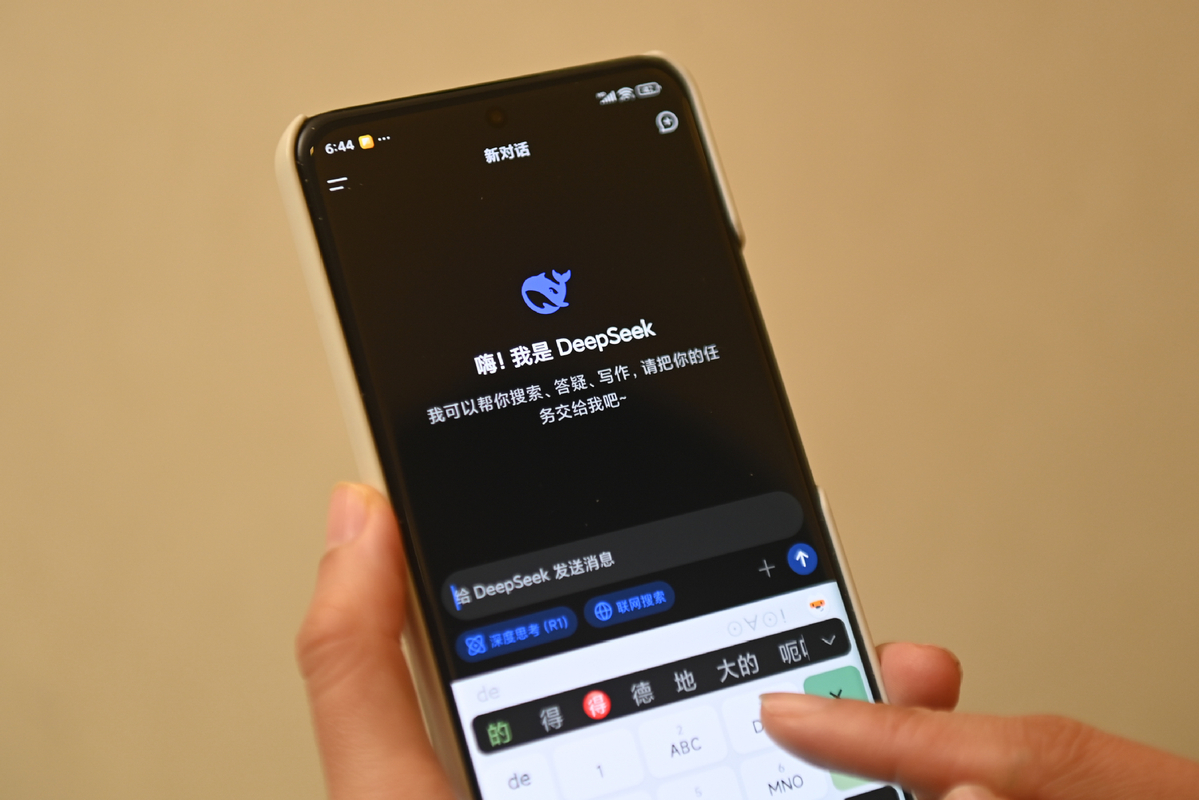How Africa can leverage China's AI expertise
By Dennis Munene | China Daily Global | Updated: 2025-03-26 09:17

The Chinese artificial intelligence startup DeepSeek has revolutionized technological advancement in the 21st century with its AI-powered tool that achieves high performance at a much lower cost compared to its competitors. This has given impetus to other nations in the Global South, such as those in Africa, to benefit from and advance their role in the development of the fourth industrial revolution.
AI tools and platforms have the ability to benefit the global economy by modernizing agriculture, promoting poverty alleviation, enhancing security in the financial sector, and improving governance, education and healthcare systems.
However, the African continent is at a disadvantage when it comes to the adoption and development of AI due to endogenous challenges such as poor digital infrastructure and inadequate government policies. In October 2023, China put forward the Global AI Governance Initiative, which enables China to provide its solutions and wisdom toward AI development and governance, and this can surely benefit Africa.
Further, pushing for equality and inclusiveness, President Xi Jinping said at the G20 Summit in Rio de Janeiro, Brazil, in November, that AI should not be a game of the rich countries and the wealthy. For Xi, the benefits of AI contribute to shared prosperity.
To compete with key players in the AI sector, unlock its digital future and ensure there is equality and inclusivity, Africa needs more cooperation with countries such as China.
To this end, under the 10 partnership actions proposed at the 2024 Summit of the Forum on China-Africa Cooperation, China and Africa plan to jointly build a digital technology cooperation center and undertake 20 digital infrastructure projects and digital transformation demonstration projects in Africa within a period of three years from 2025 to 2027.
The two sides also plan to bridge the AI and digital divide, enhance AI capacity building and promote exchanges in governing cross-border data flow. This will spearhead the Initiative on China-Africa Jointly Building a Community with a Shared Future in Cyberspace, proposed in August 2021.
The collaboration between China and Africa will enable the continent to bridge socioeconomic gaps, empower marginalized communities and foster inclusive growth through AI techniques.
To effectively leverage China's expertise and the 2024 FOCAC Summit partnership agenda, first, Africa needs to embrace more homegrown AI models and solutions. Africa is home to over 3,000 different tribes speaking over 2,000 languages. Swahili is the most widely spoken language in Africa, with over 200 million speakers, followed by Yoruba and Igbo. Arabic is also a common language. Using more native languages to develop AI platforms will ensure far-reaching benefits for various communities compared to the usual English interface and commands.
Second, as DeepSeek and other similar models have demystified the narrative that developing AI models is costly, AI developers in Africa can learn how the Chinese managed to build a platform that has transformed the world at a low cost, and use that knowledge for homegrown AI developments.
Third, Africa has been a victim of sharp power, where AI technology has been used to promote misinformation, disinformation and malinformation, negatively impacting its governance system. The deliberate weaponization of information through AI to suit propaganda narratives and agendas has led to preconceived opinions, resulting in deeper societal polarization. But China has managed to use AI for positive change. Africa needs to leverage China's knowledge of enhancing governance and laws to ensure safe application of new technologies, and enhance personal privacy protection, especially within its communication, health and financial sectors.
Last but not least, Africa can leverage China's support for AI to solve the continent's youth bulge and unemployment challenges. The average youth unemployment rate in Africa now stands above 20 percent. This has led to increased poverty, social exclusion and social unrest, hindering economic development and stability across the continent. However, through education and skills development, young people in Africa can maximize AI opportunities on the continent and spearhead Africa's renaissance dream.
As the world continues to advance the fourth industrial revolution, China-Africa cooperation presents a transformative opportunity for the continent to harness and benefit from AI and China's AI expertise.
The author is the executive director of the China-Africa Center at the Nairobi-based Africa Policy Institute. The views do not necessarily reflect those of China Daily.
























